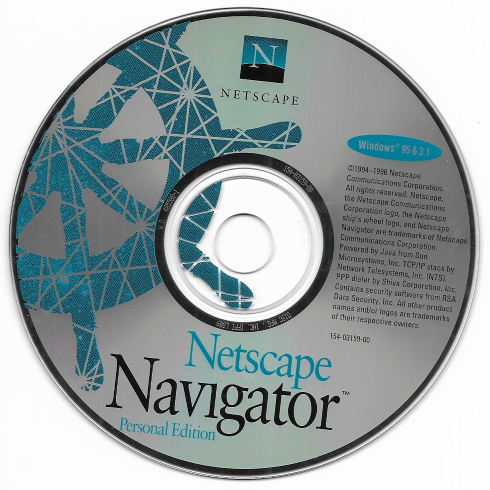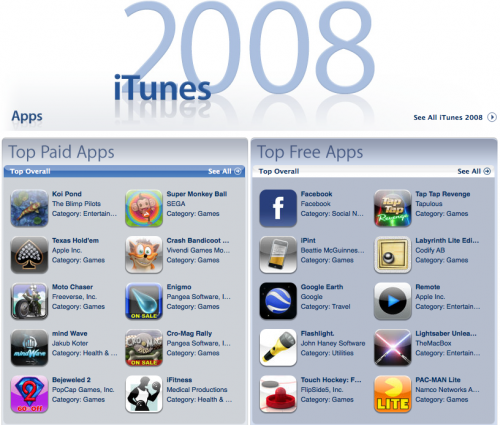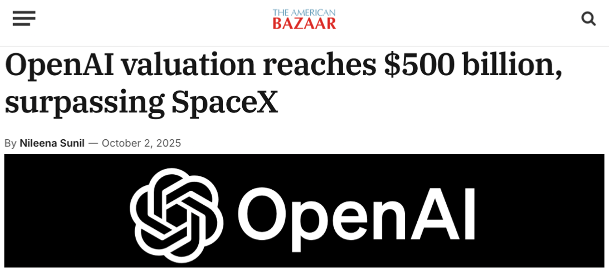"History doesn't repeat itself, but it rhymes." - possibly Mark Twain
Last week, as part of Productized's Leaders Day, Dave Martin ran a panel discussion where we were challenged to predict next year's big news. Here's an extended version of my past-might-inform-the-future thought… I product managed my way through several earlier booms and busts, but the AI boom is massively bigger.
Browsers and The Web (1995)
In 1995, browsers first arrived and Netscape was the hottest company on the planet – with valuations seesawing wildly between $1B and $5B. “The Web” was the only topic of conversation in the tech/business press. Board chairs demanded that their CEOs launch company websites, even though these were mostly PR and brochureware. (We didn't yet know what websites were good for.) Big VC investments went into browsers and web building tools and internet-based companies. For the next year, everyone wanted to hire an "internet product manager" as more traditional titles like "enterprise software product manager" fell out of favor.

Fast-forward a couple of years to the Dot-Com bubble. Stocks had a major reset. Most of the "internet" companies disappeared or were sold off for feature piece parts. AOL acquired Netscape in an ill-fated $4B latecomer-buys-glitz deal.
We eventually realized that the Web was part of most products – like eCommerce and online games – rather than its own thing. Product jobs listed internet/web/browser experience as a qualification, not a title. Today, we assume that almost all tech runs on the Internet, and supports a variety of free browsers. And there are a lot more product managers today than in 1995.
The App Store (2008)
The iPhone launched in June of 2007 – five months before Android – and was a minor player for the next year (Nokia 40% share, Apple 0.7%.) But in Q3 2008, Apple added 3G support and opened the App Store. A huge shift, where third party developers could build hundreds (then thousand and millions) of iPhone apps while the incumbents still had the same few generic, ugly, internally-built calendaring and address book apps on their devices. By December 2008, Apple was the leader in smartphones (with 2.4% of the overall market), and previous mobile operating systems started a slow decline.
The iPhone was the hottest thing in the tech/business press, well ahead of actual adoption or market share. Board chairs started demanding that their CEOs deliver mobile apps for their companies, even though most apps were just brochureware and couldn't do much. (It took a while for us to figure out what apps were good at.) VC invested heavily in app building tools, mobile creative agencies, and early stabs at mobile commerce. For the next year, everyone wanted to hire a "mobile product manager" instead of more traditional product titles.

2008 App Store top downloads were mostly games and obvious tools
The 2008/2009 subprime mortgage bubble and global financial crisis took a lot of steam out of mobile startups, and the Apple/Google duopoly drove most handset vendors out of business. (Android started dominating the mobile OS market in 2010.) Third party mobile tools had to live within those two proprietary camps, with limited profitability, and new consumer apps had to fight the clutter to get noticed.
Over time, we've learned that "mobile" is part of most products, and mobile experience is again an important qualification for product roles, rather than a title. We have to justify not connecting new applications to the world in those rare cases where that would be a feature (not a bug). And there are a lot more software product managers today than in 2008.
AI Is Much, Much, Much Bigger

I don't have any secret knowledge, and don't manage a $B fund, but I like to connect the dots.
Pointing out what might be obvious:
- There isn't enough revenue in the universe to justify the combined valuations of AI platforms and tool companies. And lots of players are pricing their services below computing costs, which assumes ongoing investments. Recent studies suggest that our overhyped beliefs in AI efficacy are well ahead of reality. As my physicist friends say, "Gravity isn't just a good idea. It's the law." I expect we'll see a massive write-down of investments… and AI services suddenly shutting down… and follow-on funding that depends on telling compelling economic stories about why customers will pay for the next AI thing. Mid-2026?
- Over time, we'll learn which parts of our products need AI. And we'll keep learning which AI tools help us do our jobs – while we justify their prices as vendors start covering their costs. Unsexy use cases will beat exciting concepts. AI will become less interesting, as the web and mobile have.
- We'll again see product management postings named for products, markets, or customer problems rather than "AI product manager." Every senior job will assume experience putting AI into products as well as internal activities.
- I don’t believe that AI will replace product managers, but we have to level up. The fundamental problem of building things that we (wrongly!) hoped the world wanted gets worse as we ship slop products 20x faster. Our unique real-world insights differentiate value from slop. (No, I don’t think AI-simulated users is the answer.) So I believe that the future includes more product managers, not fewer.
Sound Byte
I've been wrong a lot. (4 of my 6 startups are tagged as "good life lessons and character-building.") But sometimes there's a pattern. Same as it ever was.
__________________
BTW, if you haven’t read Carmen M. Reinhart’s & Kenneth Rogoff’s This Time Is Different: Eight Centuries of Financial Folly, add it to your list.

